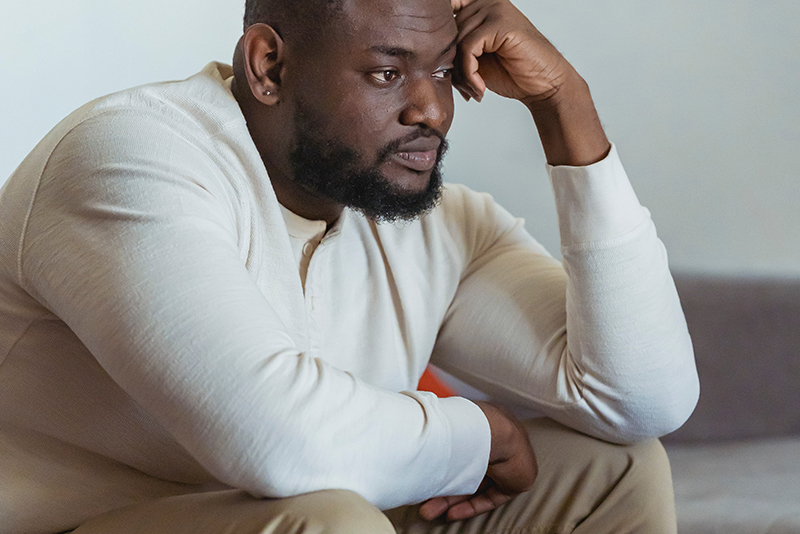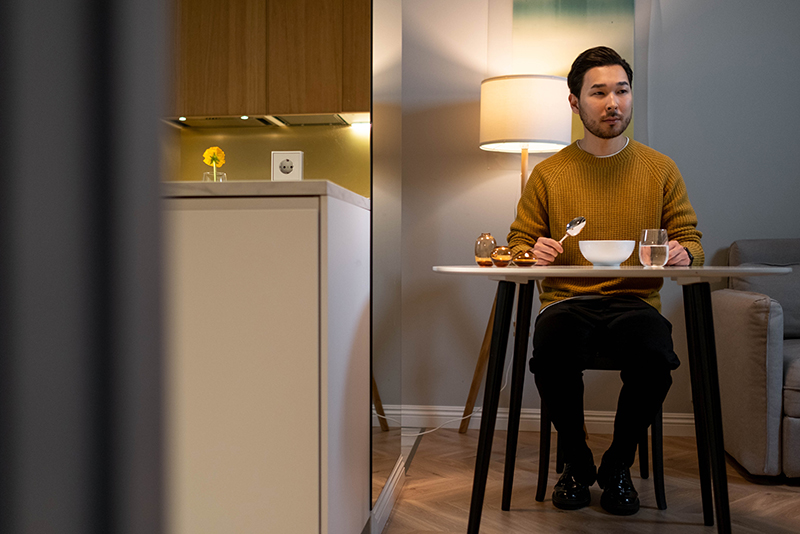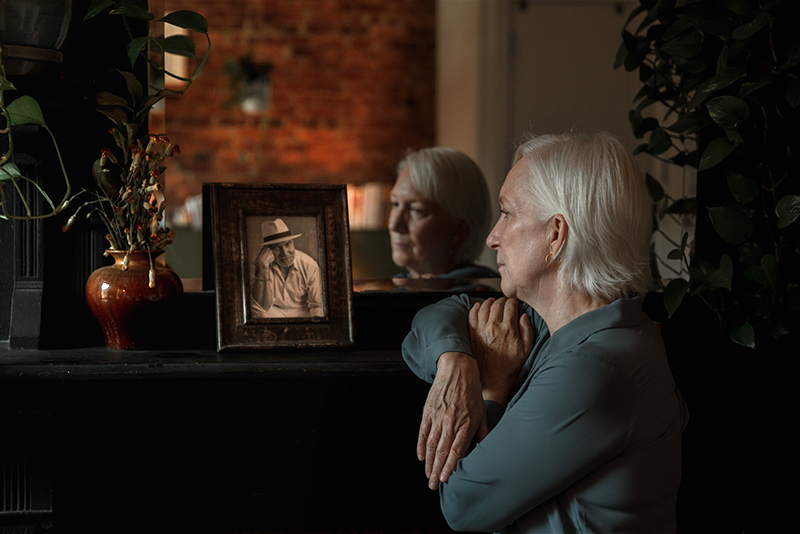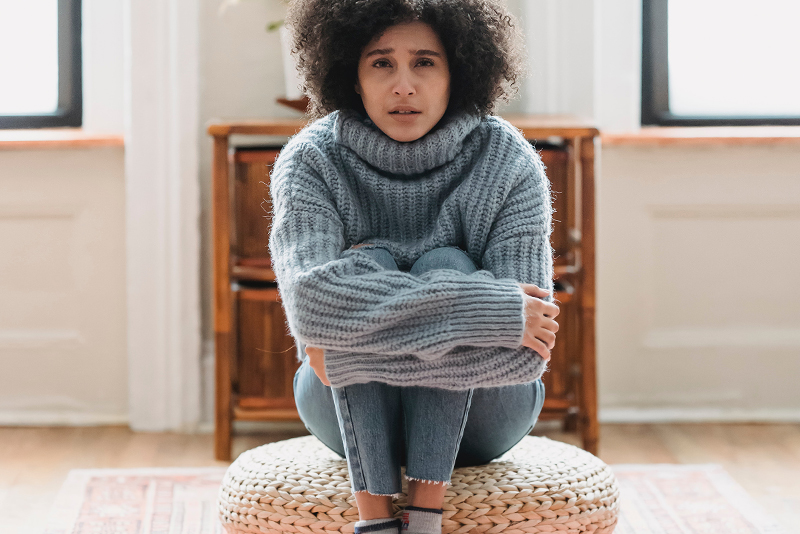By Jerry Avenaim | EXECUTIVE DIRECTOR |
Loneliness is a feeling that most of us have experienced at one point or another. It can come on suddenly or gradually, and it can last for a short while or linger for months or even years, and in relation to the connection between loneliness and mental health, it can really take a toll when it is constant or intense.
While loneliness is often thought of as a negative emotion, it can actually be beneficial in moderation as it helps us appreciate our own company and gives us time to reflect and recharge.
The Roots of Loneliness website states that while people can experience moderate or severe loneliness at any time, it can be the most acute in the late 20s, mid-50s, and late 80s.
They also mention how:
In a famous departure from the typical love songs of the Beatles, their Revolver album included a track called “Eleanor Rigby.” With its chorus repeatedly asking where all the lonely people were from and where they belonged, the song was about loneliness and depression. It is reputed to be the only Beatles song that none of the band played an instrument on.
TABLE OF CONTENTS
Loneliness: The Silent Epidemic
Loneliness is a problem that often goes unnoticed. It can be hard to spot because it doesn’t always present itself in obvious ways, but the truth is, loneliness is more common than most people realize. In fact, research suggests that it’s on the rise, particularly among young adults.
There are a number of reasons why feeling alone has become more prevalent in recent years. One theory is that social media has made us more aware of the lives of others and the connections they have, leading us to feel more isolated in comparison.
Another possibility is that we’re simply spending less time interacting with others face-to-face, which is even more true since pandemic-related social distancing and the new prevalence of working from home. It can even be difficult for those with in-office roles to find time for socializing because of long commutes, and other time restraints, like a second job.

Left unchecked, loneliness can have a serious impact on our health as well as our mental health. Published articles reference the links between loneliness and autonomic, endocrine, and immune functioning markers which indicate a number of effects can take time to present in some individuals.
Loneliness can lead to or exacerbate some of the following conditions
- Abuse
- Sleep problems
- Personality disorders
- Alzheimer’s disease
- Diabetes
- Rheumatoid arthritis
- Lupus
- Coronary heart disease
- Hypertension
- Obesity
- Physiological aging
- Cancer
- Poor hearing
Among the various challenges that face older adults, reduced resilience and other aspects of physical aging leave many prone to poor overall health, sleep problems, dysphoria, loneliness, and detrimental impact to various systems that control hormone release in response to stress, which all result in more stress.
It is not uncommon for lonely people to feel:
- Low
- Separated
- Discriminated against
- Helpless
- Alone
- Abandoned
- Socially inadequate
Because loneliness can result in both dysfunction and distress, especially in the elderly, it can even be diagnosed as a disease.
What Are the Different Types of Loneliness?

At a high level there are three main types of loneliness, and within these types, there are groups based on the triggers or circumstances leading up to the experienced loneliness.
- Situational Loneliness – key contributors include socio-economic and cultural elements that result in unpleasant experiences, and an inability to have needs met in current social circles or because of migration or conflict.
- Developmental Loneliness – The desire for intimacy and the need for individualism allow for the knowledge and development of our real self, and in a healthy individual, these are met in a balanced fashion. Contributors to an imbalance can include poverty, separations, developmental issues, personal inadequacies, and any form of disability. This imbalance can lead to emptiness and a sense of a loss of meaning in life.
- Internal Loneliness – For some individuals, being physically alone would never make them truly feel lonely. Instead, loneliness stems from their thoughts about being alone. Contributing factors include personality characteristics, low self-esteem, perceived status, low self-worth, guilt, and poor coping mechanisms.
Beyond those three, a Psychology Today article references seven types of loneliness and uses terminology to help individuals more easily recognize if they could be experiencing loneliness. That list includes:
- New-situation loneliness
- I’m-different loneliness
- No-sweetheart loneliness
- No-animal loneliness
- No-time-for-me loneliness
- Untrustworthy-friends loneliness
- Quiet-presence loneliness

The Roots of Loneliness website states that loneliness is either a chronic long-term experience, or it is transient and temporary. Beyond the three main categories, the website has an alphabetic list with details on over 100 types of loneliness, with many including links to related online resources.
What Causes Loneliness?
There are many reasons why someone might feel lonely. Sometimes it’s due to a life change or transition, such as starting a new job, moving to a new city, or experiencing a relationship breakup.
Other times, it might be the result of social isolation, which can happen if you don’t have close friends or family nearby. It’s also common for people with mental health conditions like anxiety or depression to feel loneliness more intensely.
Many people experience loneliness as a result of the lack of social interactions as well as the absence of affection normally encountered in healthy interactions.

In the same way children need certain things to be in place to develop as healthy, functioning individuals, older humans have eight specific relational needs tied to living a physically and emotionally healthy life:
- Security
- To feel validated, affirmed, and significant within a relationship
- To be accepted by a stable, dependable, and protective other person
- Confirmation of personal experience
- Self-definition
- To have an impact on the other person
- To have the other person initiate
- To express love
When these needs are continually unmet for whatever reason, the resulting experience is loneliness.
Around the world, while cultural differences can have an impact on those typically at risk, the common elements found in the group most at risk include the following:
- Female
- Widowed
- Living alone
- Being older
- Health issues
- Lower income
- Limited social resources
Loneliness and Mental Health

While loneliness is often thought of as an emotional state, it can also have a serious impact on our mental health. Studies have linked loneliness to an increased risk of developing conditions like depression, anxiety, and even dementia. Loneliness can also worsen existing mental health conditions. People who are lonely are more likely to self-medicate with alcohol or drugs, which can lead to addiction and other problems. Additionally, loneliness can lead to social isolation, which can in turn affect our cognitive health.
One study found that social isolation was associated with a decline in cognitive function over time, being linked to an increased risk of Alzheimer’s disease and other forms of dementia.
Loneliness and depression are both common experiences, but they can also be a dangerous combination. Research has shown that people who are lonely are more likely to experience depression, and that loneliness can increase the severity of symptoms. In addition, loneliness and depression can lead to social isolation, which can make it difficult to get help or support.
Overcoming Loneliness: Strategies for Success

Loneliness is a feeling we all experience at one time or another. If you are struggling, there are strategies you can use to overcome this feeling and start enjoying life again.
One of the best ways to combat loneliness is to connect with others. This can be done by joining social clubs or groups, attending community events, or reaching out to family and friends. Spending time with pets can also be helpful in alleviating loneliness.
Another effective strategy for overcoming loneliness is to stay busy and active. Filling your schedule with activities you enjoy can help take your mind off your feelings of isolation and give you something to look forward to.
Finally, it is important to be mindful of your thoughts and emotions. If you find yourself dwelling on negative thoughts, take a step back and focus on the positive things in your life. By using these strategies, you can overcome loneliness and start living a more fulfilling life.
If you are experiencing signs of mental health decline due to your loneliness, please make an appointment to see a local mental health professional. It is always easier to treat in its early stages.
When Loneliness Becomes Overwhelming: When to Seek Help
While unpleasant, feeling lonely is a normal part of the human experience, and it is nothing to be ashamed of. Many of us go through periods of sadness when we feel disconnected, but when loneliness is persistent and overwhelming, it can take a toll on our mental and physical health. If you’re struggling to cope with loneliness, it’s important to seek help.

There are a number of signs that indicate that loneliness has become overwhelming. If you find that loneliness is interfering with your ability to work or take care of yourself, if you are abusing alcohol or drugs in an attempt to numb your feelings, or if you are having thoughts of suicide, it is important to seek help immediately.
There are many resources available to help you deal with loneliness, and there is no shame in asking for help. With the right support, you can learn to cope with it in a healthy way.
If you’re struggling with loneliness, know that you’re not alone. There are people who care about you and want to help. You can start by reaching out to your family and friends, or you can join a support group. If you’re feeling so isolated that you wonder about your purpose in life, you can also contact a helpline like the National Suicide Prevention Lifeline at 1-800-273-8255.
Conclusion
Loneliness is a silent epidemic that takes a heavy toll on our mental health. However, there are strategies for success in overcoming loneliness. The power of social connection is one of the most important tools we have in doing so. If loneliness becomes overwhelming, it is important to seek help. With the right support, we can all find ways to feel connected again.
Subscribe to get notifications about future articles.
About the Author: Jerry Avenaim – EXECUTIVE DIRECTOR



